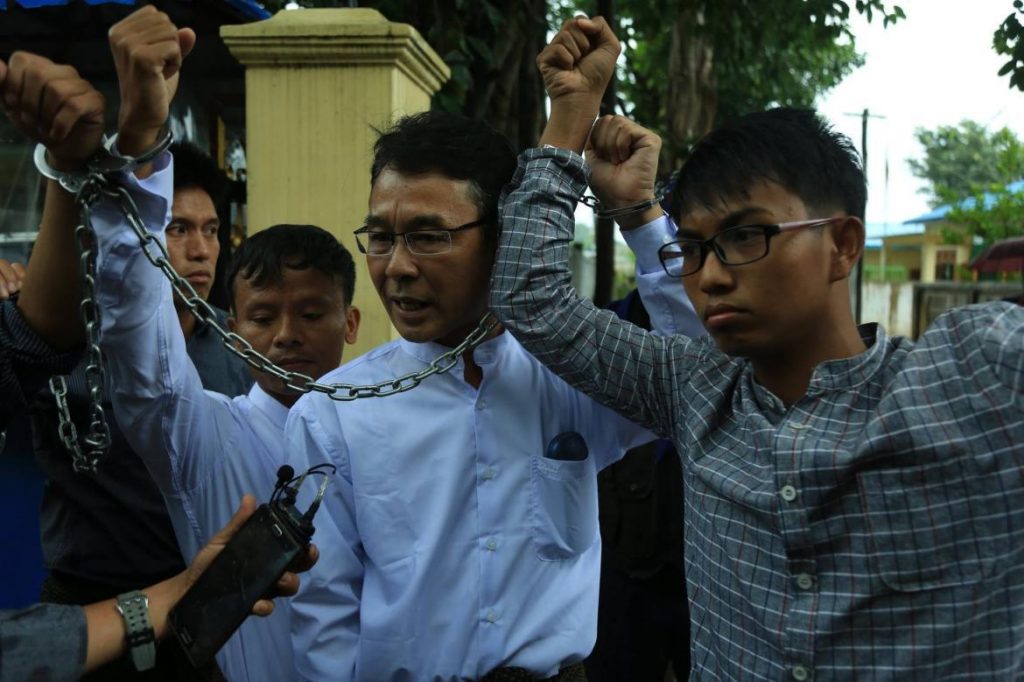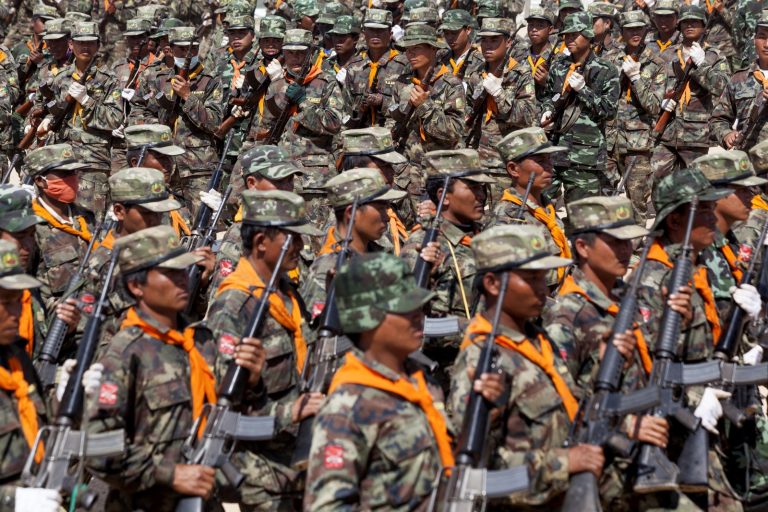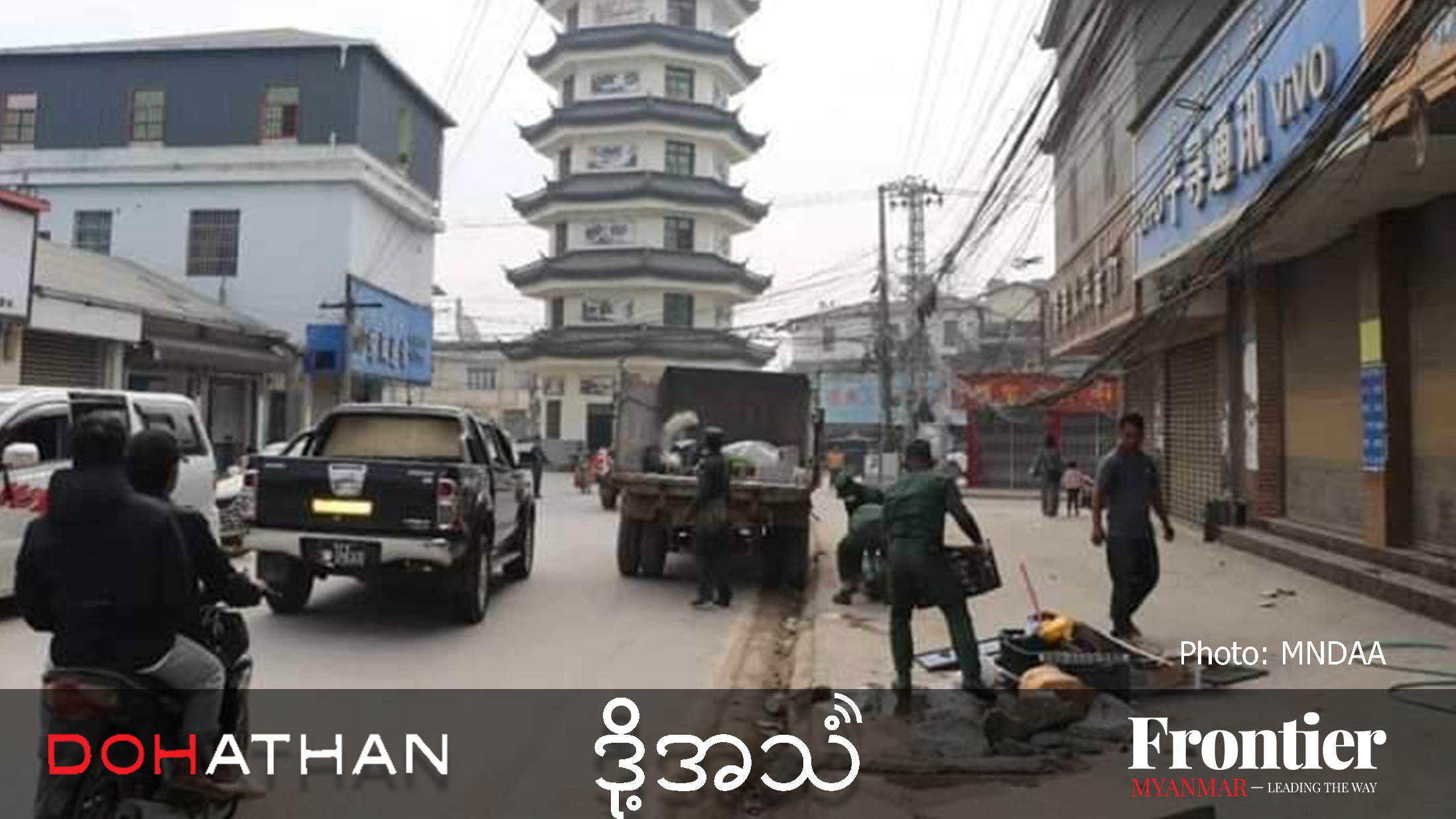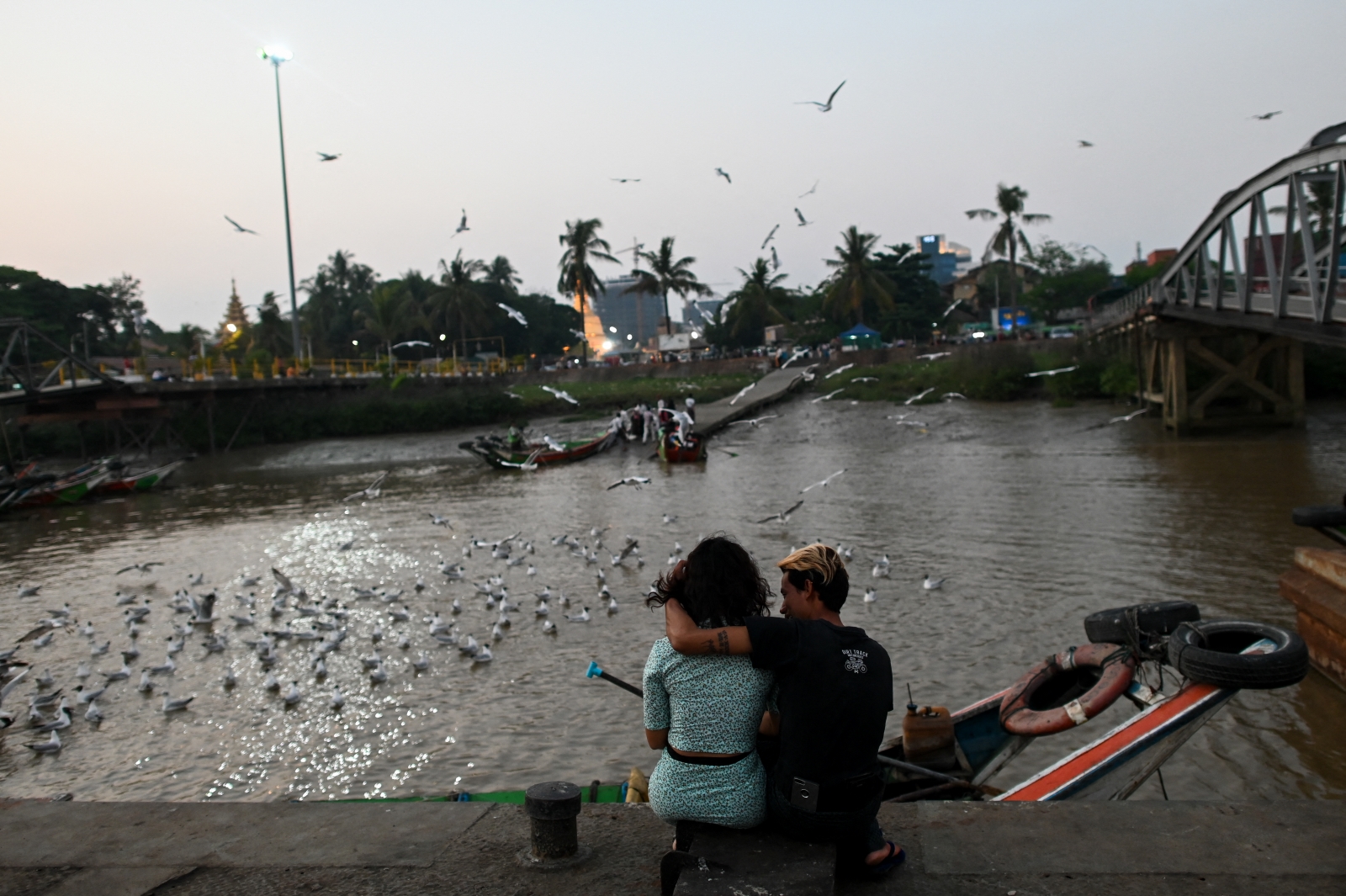The case of the three reporters detained by the Tatmadaw in Shan State last month and charged under the 1908 Unlawful Association Act has raised a number of questions, but answers are elusive.
By NYAN HLAING LYNN | FRONTIER
THE CASE of the three reporters detained by the Tatmadaw in northeastern Shan State a month ago for allegedly breaching the colonial-era Unlawful Associations Act raises questions that deserve answers.
DVB reporters Ko Aye Naing and Ko Pyae Bone Aung, and Ko Lawi Weng (aka Ko Thein Zaw), a senior reporter with The Irrawaddy, were detained on June 26 while returning from a ceremony hosted by the Ta’ang National Liberation Army, a non-signatory of the so-called Nationwide Ceasefire Agreement, to mark the International Day against Drug Abuse and Illicit Trafficking.
The trio was detained on the road between Namhsan and Hsipaw, which is about 60 kilometres southwest of Lashio.
Family members of the accused, as well as their colleagues and legal teams, have objected to a number of discrepancies and contradictions in official statements and other aspects of the case.
Support more independent journalism like this. Sign up to be a Frontier member.
The maximum penalty for a conviction under the Unlawful Associations Act is three years’ imprisonment and a fine.
Where were they taken first?
In its June 26 statement announcing that the reporters had been detained, the Tatmadaw said they were taken to the police station in Lashio on June 26. However, government spokesman U Zaw Htay said the trio was initially held at a military camp. Police in Hsipaw said the trio was taken to the prison in the town late on the afternoon of June 28.
This raises another question: Why did the Tatmadaw statement say the reporters were taken to Lashio on June 26?
Why the delay in being remanded?
Lawyer U Maung Maung Win, a retired divisional court judge who will defend the two DVB reporters, has questions about a delay in remanding the trio in custody on the unlawful association charge.
“They were arrested on June 26 but were not remanded until 4pm on June 28,” he said.
The delay might be in breach of section 376 of the Constitution, which states that except in cases involving national security or which threaten law and order, no person may be held in custody for more than 24 hours without being remanded.
If pressed, the Tatmadaw would likely cite the national security exemption, as they did when they detained two Kachin pastors for four weeks until they were handed over to police at Muse, Shan State, on January 22.
Why Hsipaw and not Namhsan?
U Khin Maung Soe, a multimedia editor at DVB, said he did not understand why the remand hearing took place in Hsipaw when the trio was detained in Namhsan Township.
It was very difficult to find out which court issued the remand and why it was Hsipaw and not Namhsan, he said.
“When I contacted the court at Namhsan, there was no one who would explain,” Khin Maung Soe said.
Maung Maung Win said it was the first time in his 40 years as a lawyer that he had heard of defendants being remanded outside the township in which they were detained.
Maung Maung Win said at the first case hearing in Hsipaw on July 7 the judge read to the court a message on his phone from his counterpart at Namhsan that gave the date for the next court hearing.
Maung Maung Win said he learned this from the journalists, who he visited in prison that day. He could not be present in court because he was not given enough notice about the change in hearing date.
“The judge in Namhsan should have come to Hsipaw to issue the remand,” he said.
Why were the hearings moved forward?
Although the authorities said the first hearing would be on July 11, it took place on July 7. The second hearing, scheduled for July 21, was also unexpectedly moved forward, to July 18, and the trio remanded in custody for another week.
Colleagues and relatives of the arrested journalists, as well as their legal teams, want to know one thing: why the court hearings are not taking place on the scheduled dates.
“This should not be happening,” said U Kyaw Zwa Moe, The Irrawaddy’s English-language editor, adding that changing hearings without advance notice was causing unnecessary distress for family members and colleagues of the trio.
“We don’t know anything about them; I’m so worried,” said U Aye Thwin, a brother of Aye Naing. The unannounced changes to hearings were disrupting plans to travel to court for hearings, for which the family had to take time off work, he said.
Khin Maung Soe said he could understand why it might be necessary to change hearing dates. “But they should take into account the inconvenience of those who have to travel from places such as Yangon,” he said.
“They could have given advance notice of the changed dates, but they didn’t. What they are doing is cruel,” said Khin Maung Soe. He had called the court at Hsipaw to ask about the changes to hearing dates but no one had answered the phone.
Maung Maung Win said there must have been a powerful reason for the courts to change the hearing dates, which had also created difficulties for lawyers preparing to defend the trio. The journalists are upset at their treatment, but the lawyers working on the case “have to avoid confronting the judge or the Tatmadaw”, he said.
“The police have to follow the law and respect human rights, but the Tatmadaw is giving instructions to the police and the judge,” he said. “All we can do is appeal to the police and the Tatmadaw to sympathise with the families of the accused by abiding by the law and respecting human rights.”
The court in Hsipaw has set the next hearing in the case for July 28.







